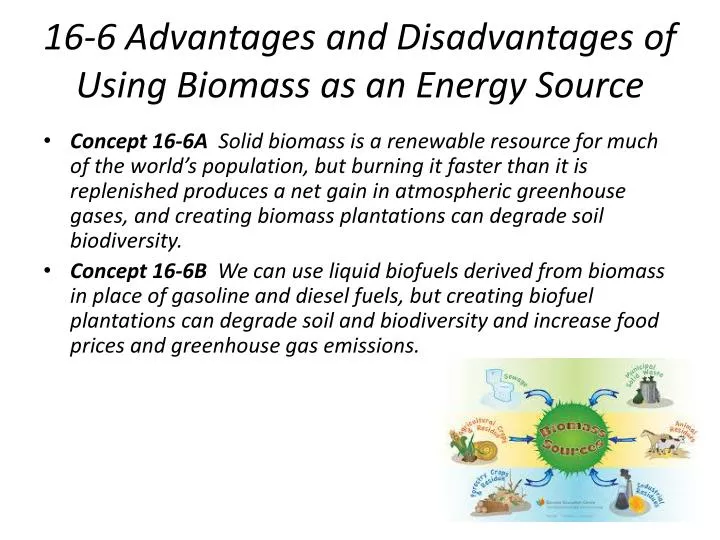
PPT 166 Advantages and Disadvantages of Using Biomass as an Energy Source PowerPoint
1. Biomass energy is a renewable resource. We can use any organic material to produce biomass energy. That's why the emphasis is on garbage, manure, and dead plants.

Biomass Energy, Sources, Advantages, Disadvantages, Challenges
A Renewable Energy Source Biomass is renewable because it uses waste residues from living resources that never runs out. Trees as one of the major sources can be replaced by planting. Biomass, therefore, depends on the continuing cycle of the living resources.
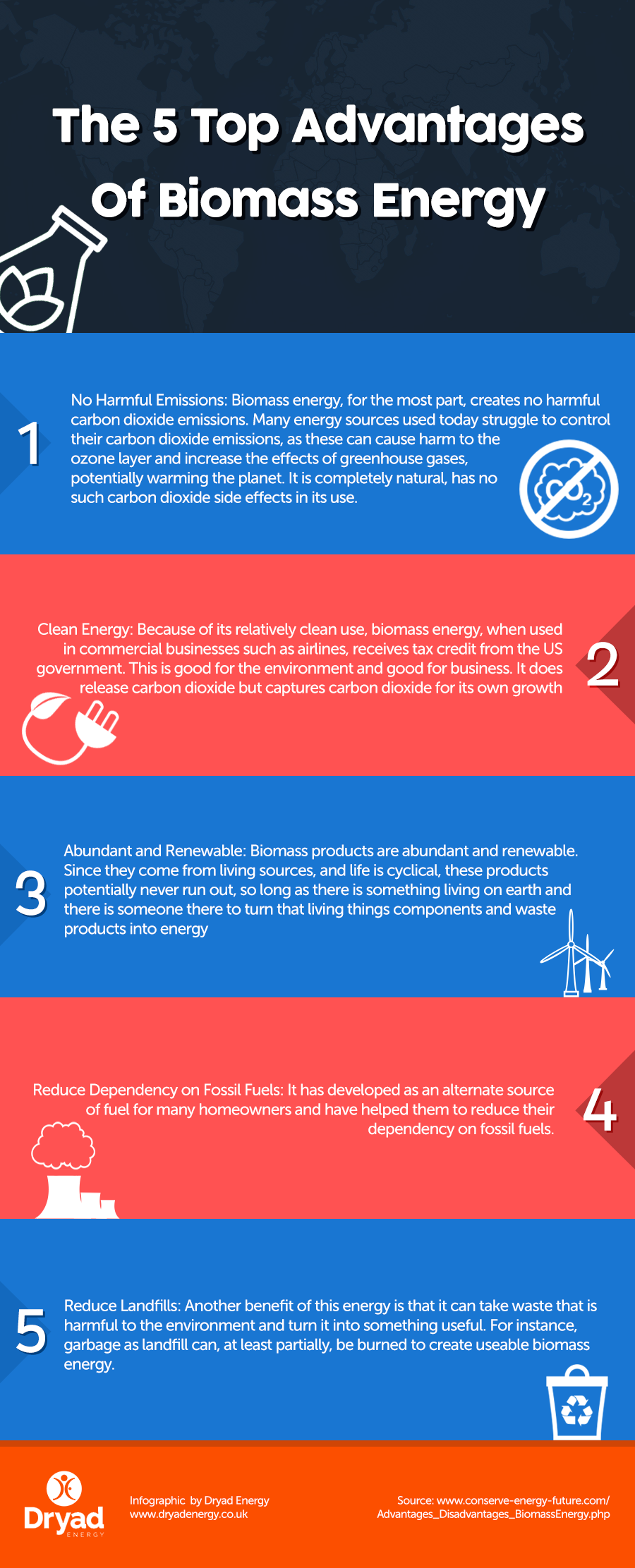
The 5 Top Advantages Of Biomass Energy Infographic Worthy to Share
Biomass energy: advantages and disadvantages Disadvantages of biomass: As we have seen, one of the disadvantages of biomass is the possibility of overexploitation, but with good planning problems can be avoided.The distribution channels for biomass and the storage systems could also be improved over time so the correct supply of material can be achieved.
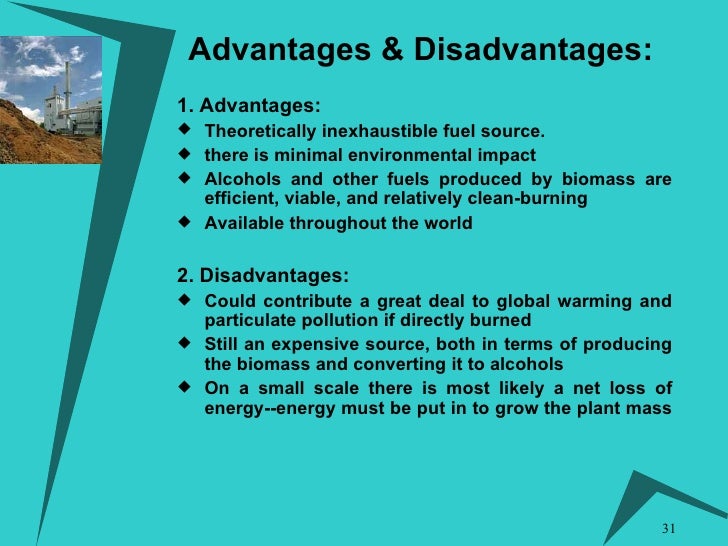
Biomass A Profitable Energy Resource
One other disadvantage of biomass fuel production is that it is quite expensive, with costs including paying for the large amount of labor involved and transportation costs as this type of energy must be produced close to where the source is obtained. Uses Today

Biomass energy advantages and disadvantages Woodbase®
Waste reduction Carbon-neutral. Show more What are the pros and cons of biomass energy? When looking at renewable energy sources, it's important to look at all of their advantages and disadvantages. The following table outlines some of the biggest pros and cons of biomass energy: What is biomass energy?
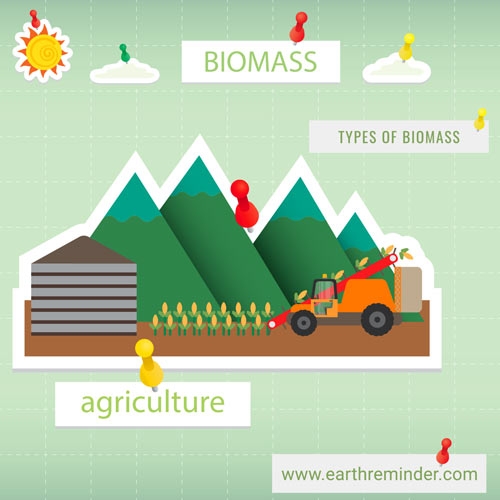
Biomass Energy Types, Advantages & Disadvantages Earth Reminder
Energy Energy from biomass: advantages and disadvantages of this alternative source In a world struggling with the climate emergency, biomass appears as an alternative renewable energy source to fossil fuels. Discover the sources, advantages, and disadvantages of biomass, and also the lack of consensus it has generated.

Debating Advantages Of Biomass!! by Claire King
Biomass energy, also known as bioenergy, becomes so popular nowadays, as it supplies the most valuable entity that we demand in our daily life. The energy produced from the Biomass is a renewable source, that means it can be generated in the future. Therefore, by analyzing the advantages and disadvantages of biomass energy, we can apply this to our future to produce lots of goods and also to.

Biomass Pros And Cons change comin
Check out the table below to get a better overview of the advantages and disadvantages of biomass energy. Pros. It's renewable and easily accessible. It helps us become less reliant on fossil fuels. It's cheaper than fossil fuels. It reuses waste and reduces landfill. It's carbon neutral (according to some) Cons.

What Is Biomass Energy Sources Advantages And Disadvantages tecadmin
Things like oat straw replenish yearly. Other things like trees take decades to replenish. How Does Biomass Energy Work? That depends on the type of biomass. Biomass energy usage is the oldest type of energy harvesting humans have used, starting with burning wood and weeds.
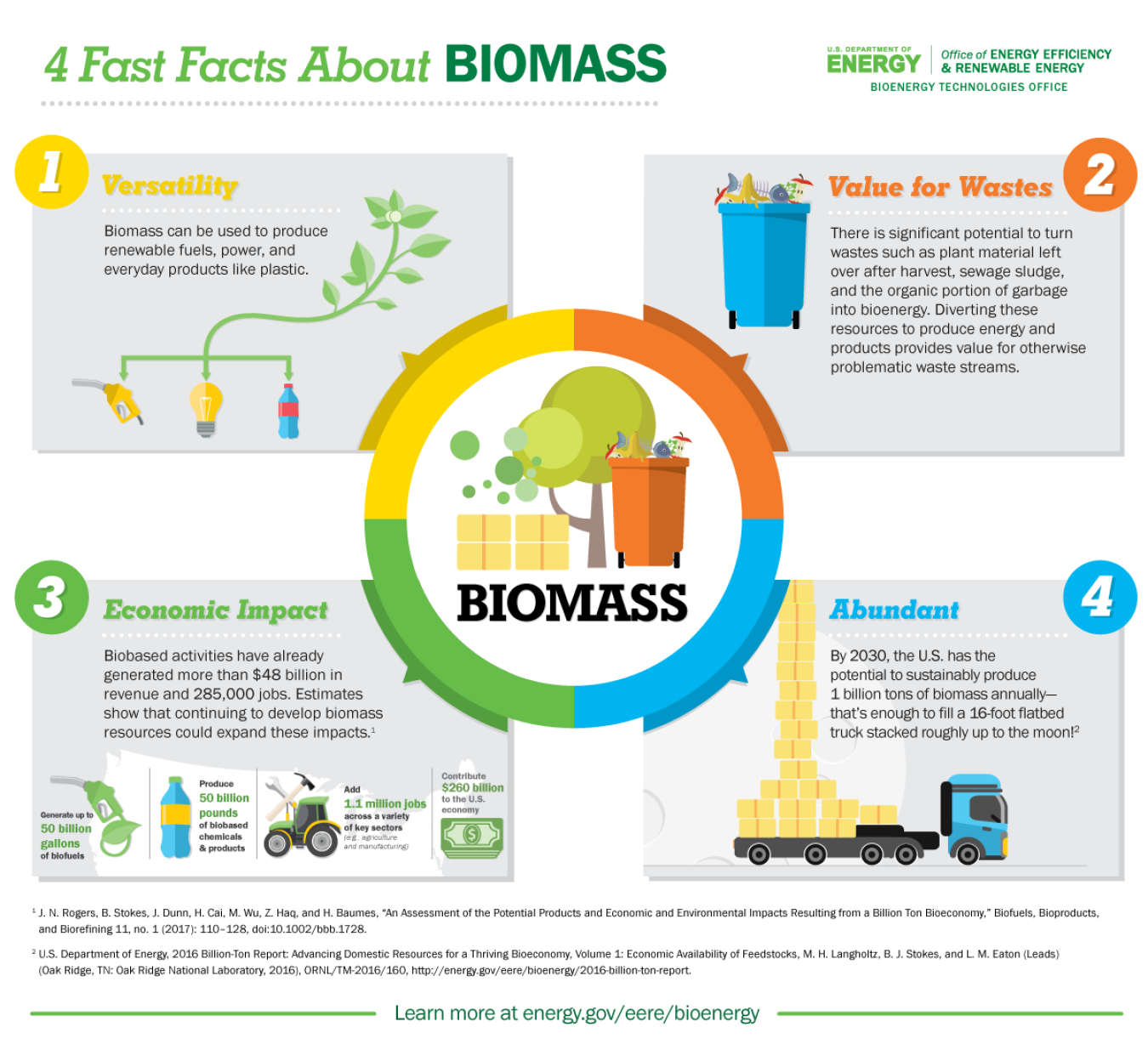
4 Fast Facts About Biomass Department of Energy
When considering bioenergy for an upgrade to your home or making your business greener, it is important to be aware of the advantages and disadvantages of biomass. So, let's dive deeper into the benefits and drawbacks of biomass! Pros of Biomass Energy. Here are the main advantages of biomass: 1. Renewable and Sustainable Energy Source
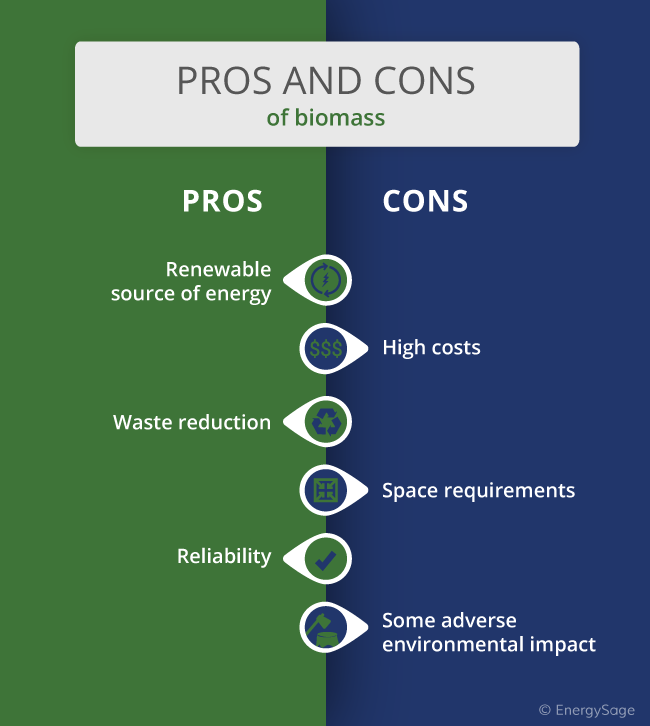
Pros And Cons of Biomass EnergySage
1. It's a renewable source of energy 2. It's carbon neutral (maybe) 3. It keeps organic waste out of landfill 4. It's more efficient than fossil fuels 5. It's versatile Disadvantages 1. It generates harmful emissions 2. It causes air pollution 3. It contributes to deforestation 4. Biomass production uses a lot of water 5.

What Are Advantages And Disadvantages Of Using Biomass
1. Renewable energy won't run out Renewable energy technologies use resources straight from the environment to generate power. These energy sources include sunshine, wind, tides, and biomass.
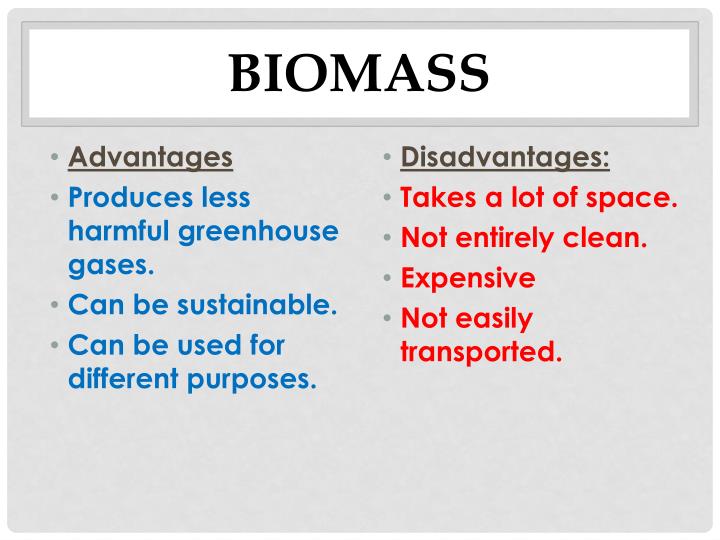
PPT Advantages & Disadvantages of Energy Resources PowerPoint Presentation ID2928438
Biomass contains stored chemical energy from the sun that is produced by plants through photosynthesis. Biomass can be burned directly for heat or converted to liquid and gaseous fuels through various processes. Biomass was the largest source of total annual U.S. energy consumption until the mid-1800s.

Advantages and Disadvantages of Biomass Energy List of Various Pros and COns of Biomass Energy
Biomass is a renewable source of energy, derived from burning animal and plant waste. Almost all industries (see extensive list), including agriculture, forestry, colleges/universities, municipalities, hotels, resorts, sports venues, hospitals and correctional facilities, produce waste that can be converted to heat and electricity.. A September 2017 report by the U.S. Energy Information.

Pros And Cons Of Biomass cafeviena.pe
Updated Mar 9, 2022 5 min read Why trust EnergySage? Table of contents Top pros and cons of biomass Advantages of biomass Disadvantages of biomass Biomass refers to any organic matter used to create energy. This could include everyday animal matter as well as different crops. It can be burned or turned into liquid for electricity generation.
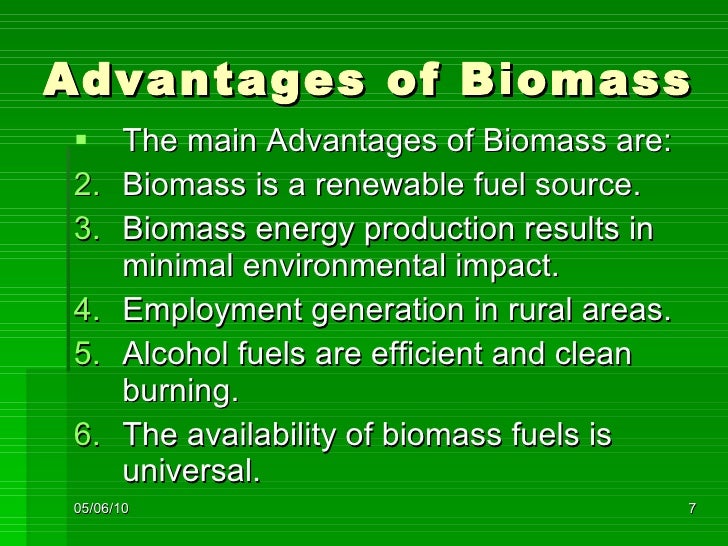
Biomass
ARTICLE Biomass Energy People have used biomass energy—energy from living things—since the earliest homonids first made wood fires for cooking or keeping warm. Today, biomass is used to fuel electric generators and other machinery. Grades 9 - 12+ Subjects Biology, Ecology, Earth Science, Engineering Photograph Feedstocks